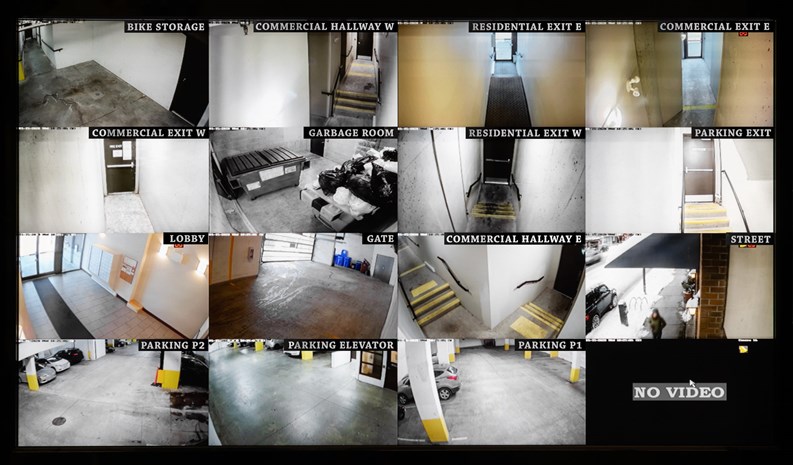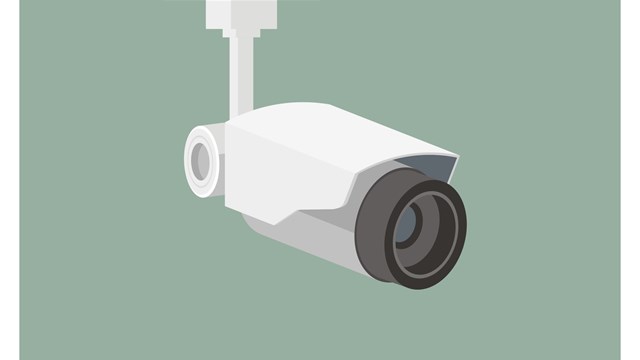Q. At what point do security cameras become a creepy form of police-state surveillance, and how is a community able to respond to prevent abuse of board authority on such things?
Our co-op community on Long Island has had basic security cameras on the property to ensure safety and the occasional need to document oversized vehicles causing damage to our entrance gates. The camera system and video equipment are stored in the community’s main office. All board members, the property manager, and the superintendent have 24-hour access to view these cameras on their personal computers and mobile devices.
In the past few years, some areas have had additional cameras installed: the fitness room, community room, and outdoor pool area. The board has insisted that these have been installed for liability purposes to ensure documentation of any incidents or accidents and to prevent theft of equipment.
It has become apparent that the board members have been fining individuals based on evidence of a video that no one is permitted to view but them. Last month, the board updated and tripled the number of cameras. The board explained this is due to “crime in the area” and shareholder complaints of vehicle damage, theft of items in unlocked vehicles, and what they consider the most serious offense—not picking up dog excrement. The cost of this upgrade has been in excess of $25,000, and we have heard more cameras are to be added to ensure complete coverage of the community.
Shareholders have expressed concerns about privacy and quality of life considering this invasion. We were told that the cameras capture every movement and the quality is as close to facial recognition as it could be. As these cameras were being installed, shareholders wanted to know where the cameras were being pointed. Apparently, every walkway and parking area is being monitored and viewed only by board members. It is causing a sense of mistrust and uneasiness among our neighbors as the board members are the only ones viewing these cameras.
Most recently, a shareholder expressed her concern of working out in the fitness room alone, feeling uneasy with the camera viewing her during that time. She feels she can’t utilize the amenity she pays for knowing that she is being recorded.
Where does the fine line of security over surveillance become an issue? It was suggested that a third party take over all aspects of security camera operations thereby removing access from the board who appear to log in at their convenience. The response was that this would be an added and unnecessary expense. What is a community to do to ensure a level of safety and security and yet not feel the invasive and abusive control of a board seeking to enforce fines on their neighbors?
—American Citizen Living Under Communist Conditions
A. “Subject to any particular restrictions that may exist in the cooperative’s bylaws or proprietary lease, the co-op board is going to have broad power under the business judgment rule to decide on an appropriate level of security for the complex,” says Stewart E. Wurtzel, partner at New York City law firm Tane Waterman & Wurtzel, P.C. “Cameras are ubiquitous with everyone having cell phones, Ring doorbells, and security cameras affixed to their units that may pick up activity on some of the common areas. The board’s decision to install cameras and how they are going to be monitored are clearly a proper corporate purpose; therefore the board’s decision will be entitled to business judgment rule protection unless bad faith, lack of authority, or self dealing exists. All of the reasons the reader cited for the installation of cameras—crime, rules violations, security—are all legitimate board concerns, and security cameras are a valid way to deal with these issues. Even the board’s decision to privately monitor the cameras would not run afoul of the business judgment rule. However, the corporate documents need to be reviewed to determine whether there are any restrictions on the board’s ability to expend such sums without shareholder approval (unusual in a cooperative but not so in a condominium or a homeowner’s association).
“Some rules relating to camera installation, while scarce, do exist. For example, are the cameras only capturing video, or are they recording sound? If conversations in public places are being recorded, there should be concern that the cooperative may be engaging in illegal eavesdropping, which is a felony under New York law. In New York, a conversation may be recorded if one party to the conversation consents (even if the other does not know about it). But if audio exists, it is possible that conversations between people who have not consented are being recorded and therefore running afoul of the law.
“Another restriction would relate to the installation of the cameras in areas which would clearly be inappropriate—locker rooms, bathrooms, or a view into a resident’s home—or any other place where a resident would have a reasonable expectation of privacy (by law, that is defined as being ‘a place and time when a reasonable person would believe that he or she could fully disrobe in privacy’). The statute makes it a felony to record private body parts, dressing or undressing, or individuals engaging in sexual acts, but does not broadly ban recording of any other type of conduct.
“Lastly, an individual who installs a camera on their property for the purpose of filming recreational activities which occur in the backyard of a neighboring residential property with the intent to harass, annoy, or alarm the neighbor could be subject to an action for damages under the NY Civil Rights Law. It is doubtful that this would apply to installation of a camera by the cooperative which monitors common areas because it was not done with the intent to harass or annoy, nor would common areas be classified as a backyard.
“The residents’ best response may be a political one rather than a legal one. If there is widespread feeling that there are too many cameras on the property or the cameras are too intrusive, raising the residents’ concern with the board may result in an acceptable compromise. It is certainly a fair issue on which to run for the board as well. Electing residents who want to roll back the level of security may be the best approach.”










Leave a Comment